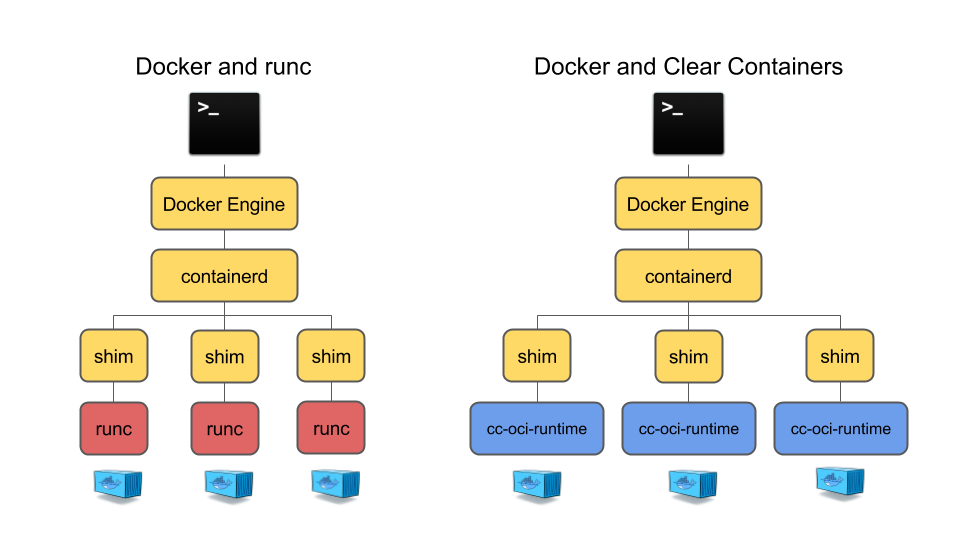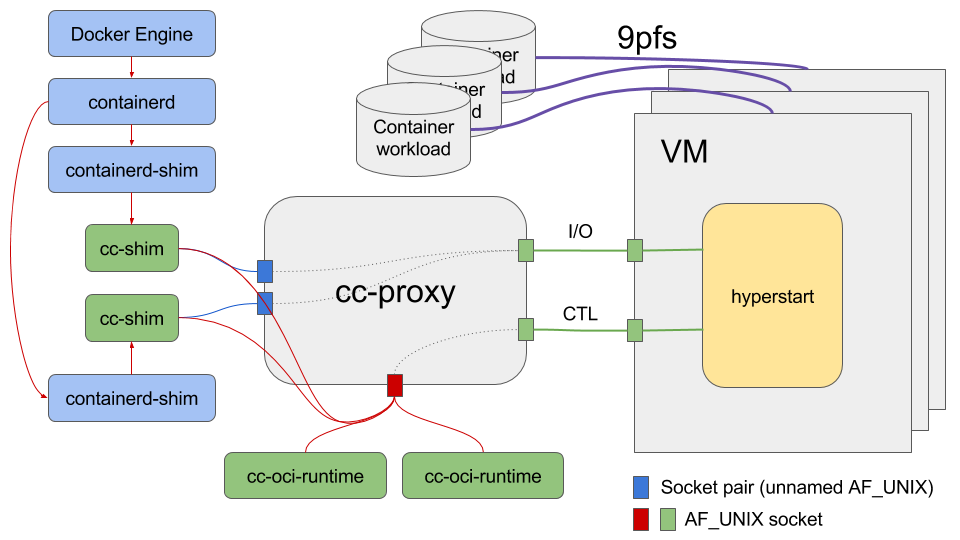This is an architectural overview of Clear Containers, based on the 2.1 release.
The Clear Containers runtime (cc-oci-runtime)
complies with the OCI specifications and thus
works seamlessly with the Docker Engine
pluggable runtime architecture. In other words, one can transparently replace the
default Docker runtime (runc) with cc-oci-runtime.

cc-oci-runtime creates a QEMU/KVM virtual machine for each container the Docker engine creates.
The container process is then spawned by hyperstart,
an agent running as a daemon on the guest operating system.
Hyperstart opens 2 virtio serial interfaces (Control and I/O) on the guest, and QEMU exposes them
as serial devices on the host. cc-oci-runtime uses the control device for sending container
management commands to hyperstart while the I/O serial device is used to pass I/O streams (stdout,
stderr, stdin) between the guest and the Docker Engine.
For any given container, both the init process and all potentially executed commands within that
container, together with their related I/O streams, need to go through 2 virtio serial interfaces
exported by QEMU. The Clear Containers proxy (cc-proxy)
multiplexes and demultiplexes those commands and streams for all container virtual machines.
There is only one cc-proxy instance running per Clear Containers host.
On the host, each container process is reaped by a Docker specific (containerd-shim) monitoring
daemon. As Clear Containers processes run inside their own virtual machines, containerd-shim
can not monitor, control or reap them. cc-oci-runtime fixes that issue by creating an
additional shim process (cc-shim)
between containerd-shim and cc-proxy. A cc-shim instance will both forward signals and stdin
streams to the container process on the guest and pass the container stdout and stderr streams
back to the Docker engine via containerd-shim.
cc-oci-runtime creates a cc-shim daemon for each Docker container and for each command Docker
wants to run within an already running container (docker exec).
The container workload, i.e. the actual OCI bundle rootfs, is exported from the host to the virtual machine via a 9pfs virtio mount point. Hyperstart uses this mount point as the root filesystem for the container processes.
